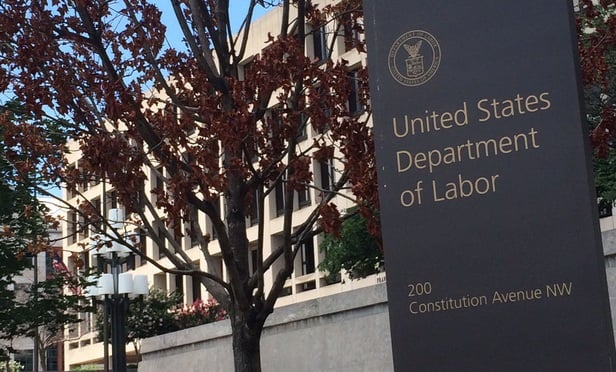Ebola is all the rage.
It's almost startling, in fact, how quickly it supplanted ISIS — or any other terrorist acronym — as the greatest threat to Western civilization.
And why is that?
Recommended For You
Well, there are probably a few reasons, not the least of which is that it's washed up on our own shores — in Dallas — with the first confirmed case hitting home at Texas Health Presbyterian Hospital. In typical first world fashion, that's all it took to become the end of the world for talk show hosts and cable news networks (Is there a difference anymore?).
Now I know we all love our dystopian futures — just look at Walking Dead and Hunger Games — but it still seems a little early to declare the sky is falling (or that lungs are collapsing).
The outbreak that began back in March in Guinea, which spread quickly to neighboring Liberia and Sierra Leone, has infected more than 7,100, killing 3,330, according to the World Health Organization. That seven-month death toll is nearly twice the number of casualties from the 40 years before that combined, so, yeah, there is cause for concern.
But, as former CNN correspondent Miles O'Brien told the network this past weekend, it's getting blown a little out of proportion.
"I wish everybody could take a deep breath and take a break from trying to pull viewers in by scaring them," O'Brien said. "It borders on irresponsibility…But there is a perception that by hyping up this threat you draw people's attention. It's a shame to even say that, and I get embarrassed for our brethren in journalism."
He raged on, "We could digress into what motivated that, the racial component of all this, the arrogance, the first world versus third world," O'Brien said. "It's offensive on several levels. It reflects, frankly, a level of ignorance we should not allow in our media and in our discourse."
Exaggeration is one thing; it's the American way, after all. It's the polarization over what appears to be simple human rights that's as unsettling as a raspy cough on an international flight. What's shocked me — and puzzles me still — is how this became a political issue. As if fighting an epidemic (anywhere in the world) was a partisan question. Suddenly it didn't become about saving lives; it became about immigration — as if all these infected people were Mexican or Canadian, as opposed to Liberian or Nigerian.
And we'd be remiss if we ignored the racial aspect of this hysteria, if even subconsciously. Would we be blaming the president if this thing has started in say, Wyoming? What if we exported this virus instead of importing it? What if patient zero wasn't a two-year-old West African baby? What if she were an Orange County toddler whose parents refused to vaccinate? Would it be as politically charged as it is now?
Finally, if there's any real takeaway from this — aside from the dangers of xenophobia — it's that we have light years of ground to make up in terms of electronic health record management.
According to a story from CIO, the Dallas man diagnosed with Ebola told a nurse on Sept. 25 that he'd been to Africa recently.
"In the facility's electronic health record system, though, nurse and physician workflows were separate," according to the CIO story. "That means the travel history the nurse entered into the hospital's Epic Systems EHR didn't automatically appear in the physician's standard workflow, the hospital said in a statement summarized by Healthcare IT News. (Update: On Oct. 3, the hospital issued a clarifying statement, saying the information had in fact appeared in the physician's workflow.)"
Then, tragically, "Not knowing that Duncan had been to Africa, the hospital released him Sept. 26. Two days later, after coming in contact with as many as 100 people, and therefore potentially exposing them to the Ebola virus, Duncan returned to the hospital, where he remains in isolation."
And this happened at one of Hospital and Health Network's 2014 Most Wired List, according to Bloomberg.
If our best and brightest still can't prevent such catastrophic errors from happening today — in the private sector, no less — how the hell can we expect the feds to get it right tomorrow?
© 2025 ALM Global, LLC, All Rights Reserved. Request academic re-use from www.copyright.com. All other uses, submit a request to [email protected]. For more information visit Asset & Logo Licensing.







